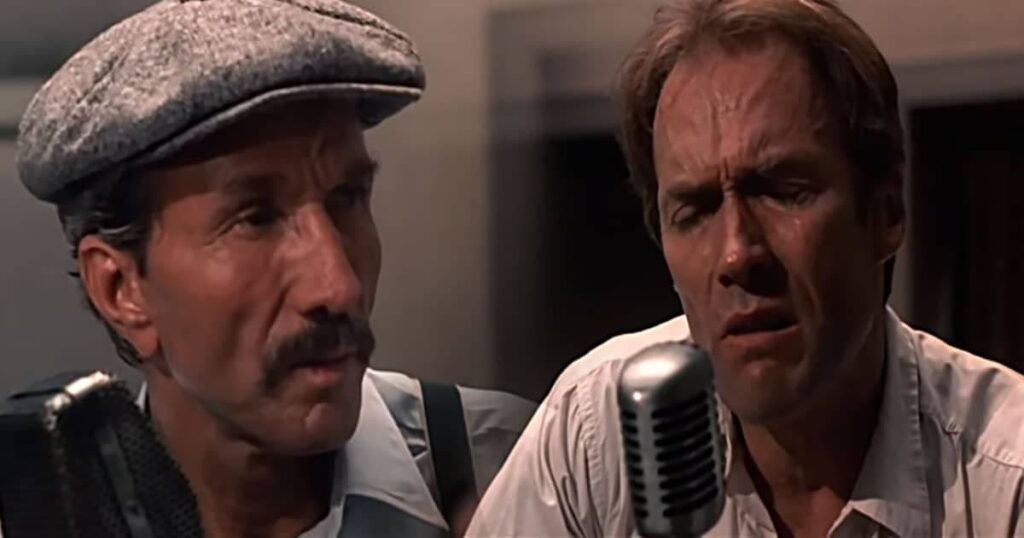
A poignant, rambling farewell that captures the bittersweet life of a rambling musician chasing one last dream.
There are certain songs that, when we hear them again after all these years, stop us dead in our tracks, not just for the music but for the memories they carry—some happy, some heartbreaking. Such is the case with “Honkytonk Man,” the last major chart hit for the endlessly versatile Marty Robbins. This song is permanently etched in the history books, not just as a great piece of late-career country, but as a moving epitaph for one of the genre’s most beloved and unique artists.
The single, released in late 1982, was the theme song for the motion picture of the same name, directed by and starring Clint Eastwood. The tune itself, penned by the talented songwriter Dewayne Blackwell, perfectly encapsulated the film’s melancholy plot: a wandering, ailing country singer named Red Stovall making one final, desperate run at the big time in Nashville. For Marty Robbins fans, the irony was thick and devastating. Robbins himself appeared in the movie as an old country star named Smoky, a delightful nod to his own legacy, and he delivered the title track with that familiar, golden voice that could effortlessly transition from Western balladry to smooth pop.
This bittersweet swan song became Marty Robbins’ final major appearance on the charts. It peaked at a respectable No. 10 on the Billboard Hot Country Songs chart in the United States and No. 2 on the Canadian RPM Country Tracks chart. While not an outright No. 1 like his earlier masterpieces—“El Paso,” “A White Sport Coat,” or “My Woman, My Woman, My Wife”—its enduring legacy far outweighs its chart position. The song arrived on the airwaves right as the film was released in December 1982, mere days after Marty Robbins tragically passed away from complications following a heart attack. Suddenly, a song about a musician on his last road trip became a real-life, heartbreaking farewell, giving the cheerful, rolling piano and the relaxed shuffle an undeniable sense of finality.
The meaning of “Honkytonk Man” is all in its easygoing, yet reflective, cadence. It’s a simple, humble ode to a man who lives for the music, the road, and the fleeting camaraderie of the next barroom crowd. “I’m a honkytonk man, and I can’t seem to stop,” he sings, capturing the pull of a life that is as much a calling as it is a curse. For those of us who remember a time when every local bar had a singer pouring out his soul, the song is a comforting echo—a sound of the road less traveled, the good times shared, and the quiet loneliness that often rode shotgun.
The magic of Marty Robbins was his boundless versatility; he was the “Mr. Teardrop” balladeer, the singing cowboy, and even a NASCAR race car driver. But with “Honkytonk Man,” he stripped away the operatic drama of his Western sagas and delivered a piece of pure, rolling, truck-stop country music. It was a beautiful, authentic final offering from a man who never stopped moving, and for us, it remains a powerful reminder of his immense talent and the void he left behind.